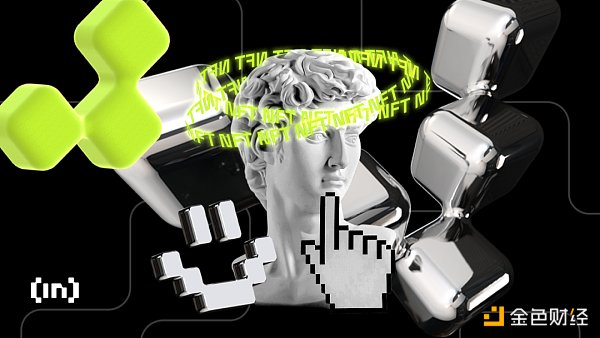Nike Embraces NFT Marketing: What Lessons Can Other Companies Entering Web3 Learn?
Nike adopts NFT marketing: Lessons for other companies entering Web3?Compiled by: Blockchain Knight
Nike’s entrance into the NFT field demonstrates a unique evolution of digital marketing, as the famous sports brand has seamlessly integrated this technology into its NFT marketing strategy, providing valuable experience for other companies to navigate the Web3 ecosystem.
So, why did Nike adopt NFT marketing, and what can their approach offer to your Web3 project in terms of experience?
Nike’s exploration of NFTs demonstrates its full understanding of evolving consumer attitudes, recognizing that people’s interest in blockchain technology, digital ownership, and collective creativity is increasing, causing it to gradually abandon a single traditional marketing strategy.
- What is “Onion Routing” in the Lightning Network and how does it work?
- Can the fluctuating Worldcoin and the UBI economics of the AI era come true?
- “Tactical” dissolution, division of national treasury assets, new profit model for DAO?

Nike’s marketing team did not focus on the technology, but rather on the consumer experience, enabling them to establish a connection with the audience in an innovative way.
By labeling their NFT product as “virtual product,” Nike cleverly avoids technical terms. This choice of terminology highlights their focus on product value and experience, rather than simply considering the technical issues involved in the product.
Nike is keenly aware that target audiences are more interested in experience than technology, so it seamlessly integrates traditional marketing strategies with NFT marketing strategies to increase user engagement.
Nike’s foray into NFTs is also about cultivating a sense of community, as the Swoosh platform provides fans with an ecosystem for interacting, creating, collecting, and trading digital assets. This community-centered NFT marketing strategy attracts fans in a novel way, as it increases loyalty to the brand, paving the way for new relationships between the brand and consumers.

Nike’s NFT marketing strategy offers valuable advice for companies entering the Web3 field, and here are some ways to use their methods to drive your project:
-
Focus on the consumer experience: Instead of inundating consumers with technical terms, focus on the value and experience that the product or service itself provides. Nike’s example shows that language that is easy to understand can make a product more accessible and attractive.
-
Build a community: Creating a community around a product or service can significantly increase user stickiness and loyalty, and can foster a sense of ownership and investment in the project by providing users with space for interaction and contribution.
-
Harness the power of digital ownership: Emphasizing the uniqueness and ownership of digital assets can increase users’ perceived value of them. By tapping into people’s growing interest in digital ownership, you can offer them exclusive experiences in the form of NFTs, and you can also rely on specialized NFT marketing agencies to provide professional services.
-
Try and learn: Like Nike, don’t be afraid to try NFT marketing strategies. The Web3 space is relatively new, so there are countless opportunities for innovation here. Use this space to experiment with different strategies, learn from successes and failures, and continuously improve methods to help companies effectively promote their brands and NFTs.
Nike’s innovative leap into the NFT field can help the company generate potential customers and provide a good demonstration for companies looking to harness the Web3 ecosystem.
By focusing on the consumer experience, building a community, and leveraging the appeal of digital ownership to users, a strong NFT marketing strategy can be created that resonates with consumers in the digital age.
We will continue to update Blocking; if you have any questions or suggestions, please contact us!
Was this article helpful?
93 out of 132 found this helpful
Related articles
- MakerDAO Core Development Team proposed to increase the DAI savings rate from 1% to 3.33%
- Comprehensive overview of the gaming industry: Pie in the sky or an oasis in the desert
- Mint Ventures Talks with Pendle CEO: Seizing Hotspots to Build Breakthrough Products
- Web3 Social: DID First, DAPP Second
- Understanding Rare Con is just one article: what other expandable gameplay is there?
- Understanding Consensus Mechanism and 11 Popular Consensus Algorithms in One Article
- Summary of the 162nd Ethereum Execution Layer core developer meeting: The reasonable target time for the Cancun upgrade is October.






